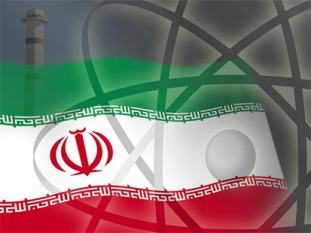The US treasury has recently expanded its blacklist on Iran to include another state-controlled bank, a shipping line, and more of its elite Revolutionary Guard Corps.
The latest move is the first step by the US in implementing new restrictions adopted by the UN Security Council last week. The Treasury also took a separate step to squeeze Iran's energy sector by identifying some 20 petroleum and petrochemical companies as being under Iranian government control--an action that puts them off limits to U.S. businesses under a general trade embargo.

On Wednesday, Iran announced that it will build four new reactors to expand its atomic research. It denies Western allegations that it is seeking atomic weapons, insisting that it only wants to develop the peaceful use of nuclear energy. In a televised speech, Iranian President Mahmoud Ahmadinejad vowed to force the West to "sit at the negotiating table like a polite child" before agreeing to further talks, adding that Iran will not make "one iota of concessions."
The Obama administration says the goal of the punitive measures is to deter Tehran from its nuclear-enrichment program. Will these sanctions further that goal? Not really.
Lest we forget, the sanctions that were passed at the UN have been watered down during negotiations with Russia and China rendering them practically ineffective. The additional sanctions by the US and the ones planned by the EU have no crippling effect on Iran's economy and do not entail an oil embargo. Sanctions can be effective only if they threaten the regime's survival, and since these sanctions are all based on Iran's nuclear energy program and not human rights, they remain ineffective. The vast majority of Iranians support their government's nuclear-enrichment policies.
Additional sanctions will most likely come at the expense of the poorest and most vulnerable, as they did in Iraq from August 1991 through March 1998.
"[The sanctions] will most probably lead to the suffering of the people of Iran and will play into the hands of people on all sides who do not want dialogue to prevail," according to the Brazilian ambassador to the UN, Maria Luiza Ribeiro Viotti. Brazil, along with Turkey, voted against the draft resolution of the UN Security Council to impose new sanctions against Iran.
Furthermore, the sanctions would allow Tehran to blame outsiders for its economic woes. In fact, the sanctions will do Iran a favor that the Iranian government can't do for itself.
As for making a dent in Iran's import- export traffic of energy products, the sanctions will have little effect. Turkey has indicated that it plans to increase its imports of natural gas from Iran. Also, according to The Wall Street Journal, oil traders and oil industry analysts say Iran will have little trouble finding other gasoline supplies in the Persian Gulf, where a black market in fuel products thrives, even if Washington passes measures that would penalize firms or individuals with business in the U.S. that supply gasoline to Iran.
Capt. Mousa Murad, general manager of the United Arab Emirates' Port of Fujairah, says gasoline sanctions will likely give a lift to a thriving black-market fuel trade in the Gulf. The region has no shortage of suppliers, he says, who will continue to hide gasoline shipments to Iran because "prices will go up two times, three times."
What options does the US have?
Those who are anxious to stop Iran's nuclear program keep reminding us that the "military option is still on the table." For years, the US has tried to stop India and Pakistan from joining the nuclear club and briefly turned off aid to them. Today, it works secretly with Pakistan to secure its arsenal and has signed a treaty with India permitting it to buy nuclear material. The Unites States option might be no option.
